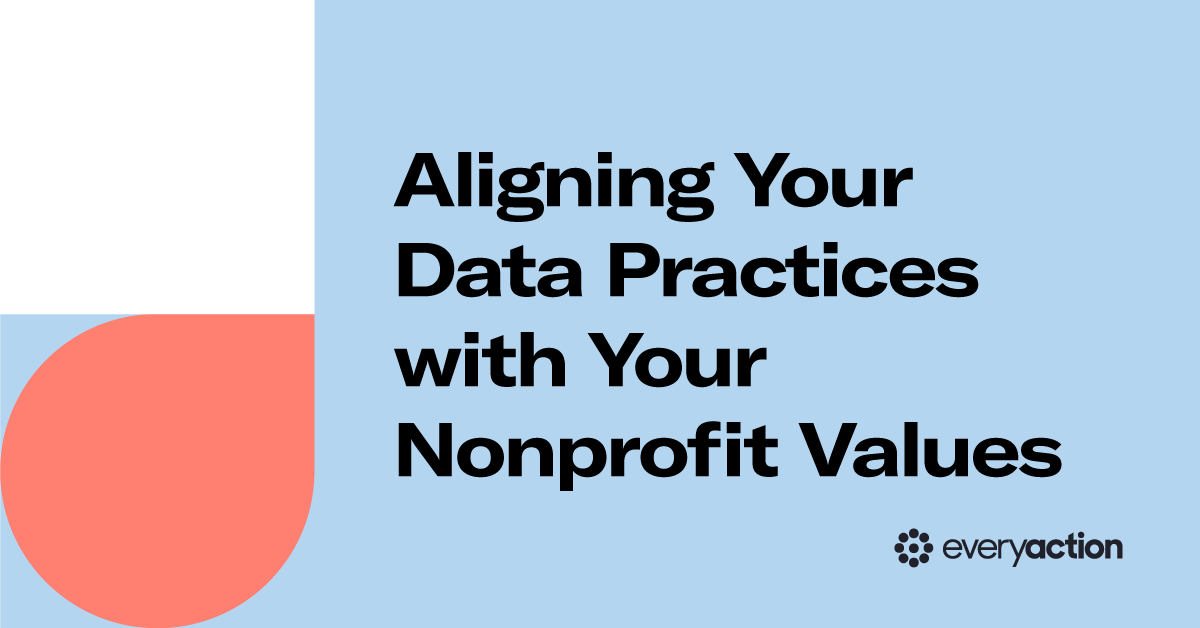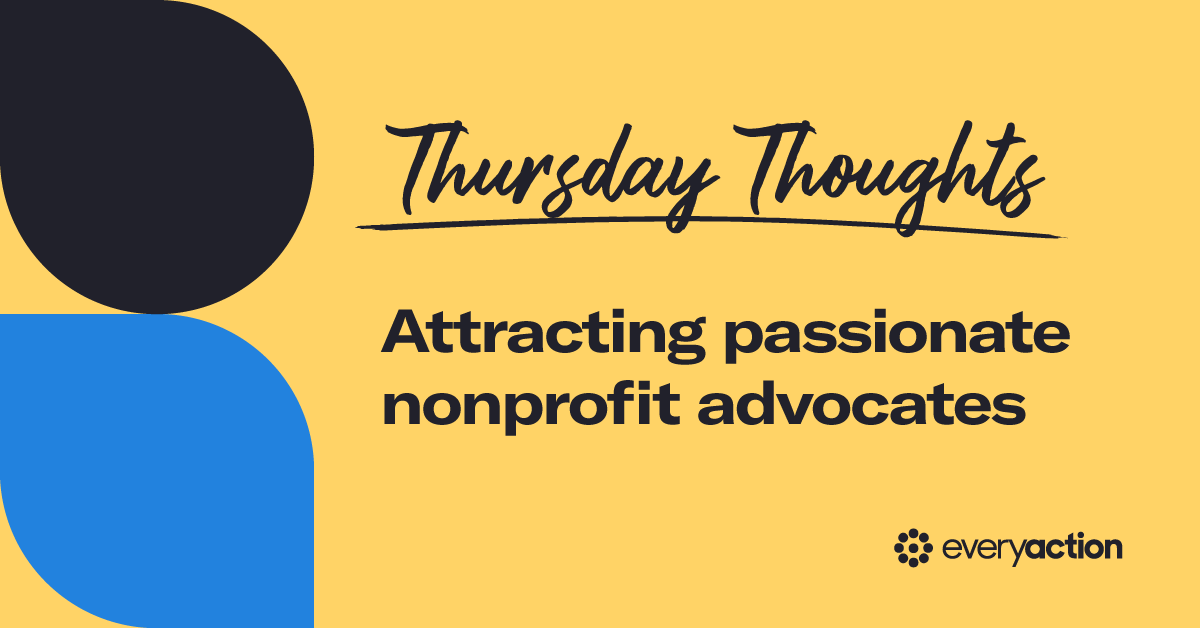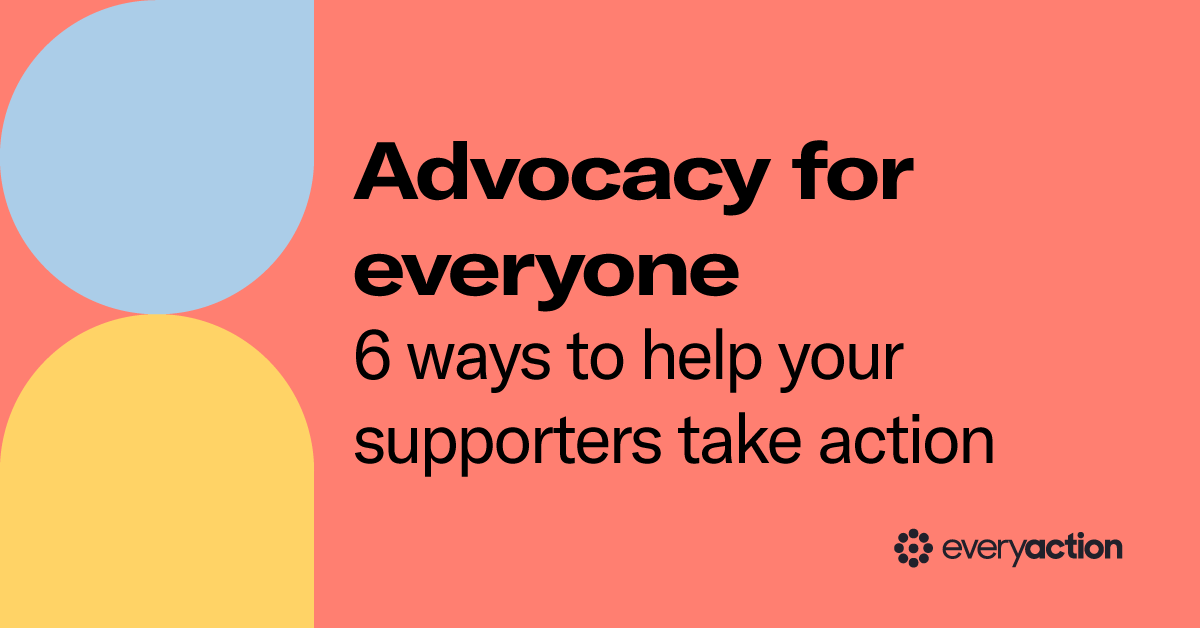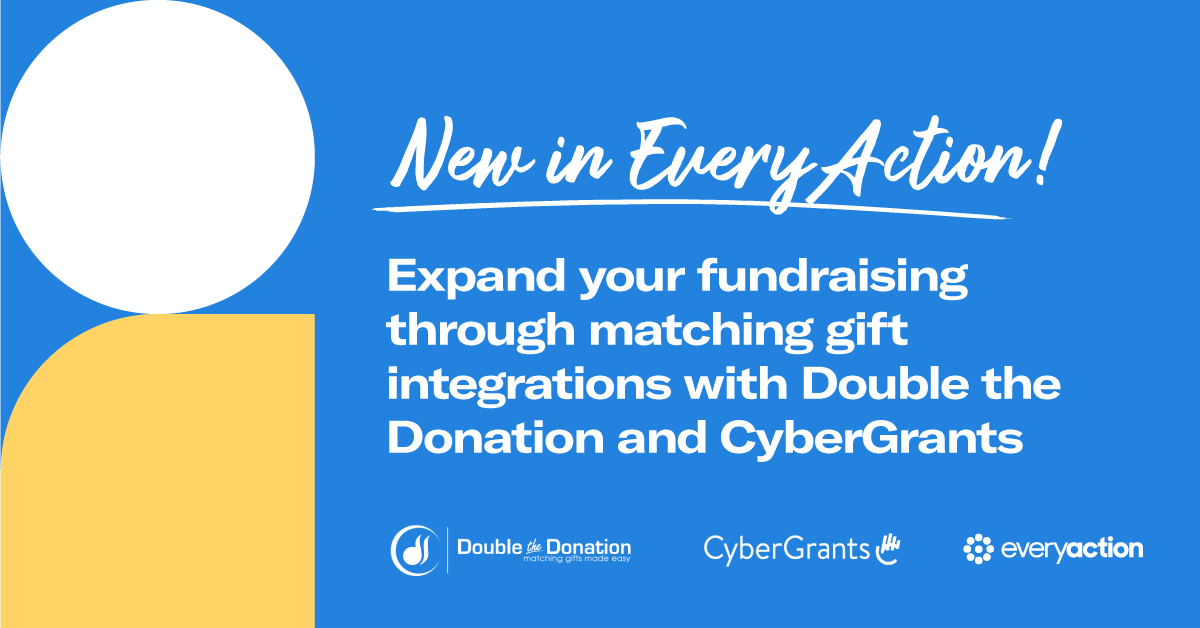Aligning Your Data Practices with Your Nonprofit Values

In our Leading with Every Action: Equitable and Inclusive Leadership livestream series, we discussed the many ways nonprofit leaders can improve their organizational practices with an equity lens. As a follow up, we asked our friends at ParsonsTKO for their perspective on data ethics—here’s what they had to say.
The values your organization holds don’t just influence the work you do to create change and do more good in the world — they also influence your technology practices. That’s why it’s important to map out how technology and data are viewed and operated by the people in your organization. How are your practices aligned with your mission and values? Nonprofits who can identify their biases around technology and data, clarify how to best use their data, and strategize together around effective and ethical uses of data will be the most well-equipped to meet their needs. Let’s dive in.
Bias and Technology: “More” Isn’t Always “Better”
While aligning your data with your nonprofit’s mission and values might sound like a straightforward enough consideration, every organization has unseen biases. These biases can block how intentional you can be with your practices.
Understanding the hold technology has on our culture is a massive feat, and there is research, philosophy, and thought-leadership across disciplines that attempt to make sense of our relationship with technology. Through a cultural lens of technology, as explored through the work of Jennifer D. Slack and J. Macgregor Wise, the received view of technology teaches that there’s a dominant culture around how we view technology. In western society, that culture tends to view technology and technological development as inherently “good.” Even if there are doubts about how useful a new technology is, or whether it’s environmentally sustainable, the ongoing cultural narrative is that technology is always a sign of human advancement, and that the development and adoption of new technologies is always worthwhile. These underlying, often unconscious, views toward technology affect how we value, interact with, and adopt technology practices, whether we’re at home or in the workplace.
It’s important to note that these biases are societal; they are nearly always unconscious due to environmental factors beyond individual control. These factors include media that espouses the benefits of more and newer technology, education that prioritizes STEM curriculum above other curricula, and idolization of tech innovators.
There’s plenty to dissect about the received view of technology and how our history has shaped that view. Acknowledging this assumption, how can we address technology more intentionally? And where can we start? One strong option is your organization’s own internal use of data.
How Nonprofits Use Technology and Data
One important element of your organization’s technology is your data, and data can hold different meanings across nonprofit organizations and teams based on their missions and program areas. “Data” can be the word staff use to describe information around constituent demographics, social media engagement, program performance, and so much more. Information like that is often abundant across organizations, but what’s interesting and important is finding ways to structure and derive value from that collected information.
When organizations are unsure of how to structure their data to derive real, actionable value from it, it’s easy to fall back on the narrative of the received view. The story tends to go like this: higher quantities of data and more resources must mean more innovative methods and powerful insights. Those technological developments are inherently good for the organization.
That logic is attractive to many organizations because it’s straightforward to understand and uses commonly accepted assumptions about how technology exists in the world. However, this logic fails to capture another variable that affects the relationship between organizations and technology: how people interact with the organization’s technology.
Data, Ethics, and People
Why should nonprofits care about how the people at their organizations interact with and use their data? Because sometimes, the cultural bias toward technology as inherently good can take away power from the people making decisions about it. People are the ones to wield technology to benefit (or harm) an organization, and organizations are best served when they make decisions — from whether to adopt a management tool, collect for one variable over another, or manage a dataset a certain way — while considering human interaction as a factor.
It is the oversight of human intervention that so often leads organizations to feel at a loss with their data and technology. The assumption that technology alone will solve your organization’s problems can lead to ineffective decision-making. Every organization needs to consciously align their mission and values ― what’s considered “good” for the organization ― with their technological practices.
Working with data ethically and thinking intentionally about your organization’s technology practices can seem complex, but it’s worthwhile. Taking time for deep thought and research about existing practices is a first step. However, the next step needs to include dialogues with other stakeholders at the organization to work collaboratively through these biases. From there, organizations must move beyond individual perspectives to address communities of people who can dissect what data means to you and your organization. Most importantly, at any organization, the people who run it must have the leverage and inspiration to use technology more equitably and ethically in practice.
Ultimately, technology alone isn’t something organizations should view as inherently good — but when the people using it are making the effort to do so, technology can be effectively used for good. This important distinction can help your organization identify hidden biases, investigate your current uses of data, and develop more useful and values-driven strategies for putting your data to work; all of which can help you advance your mission and do good in the world.


